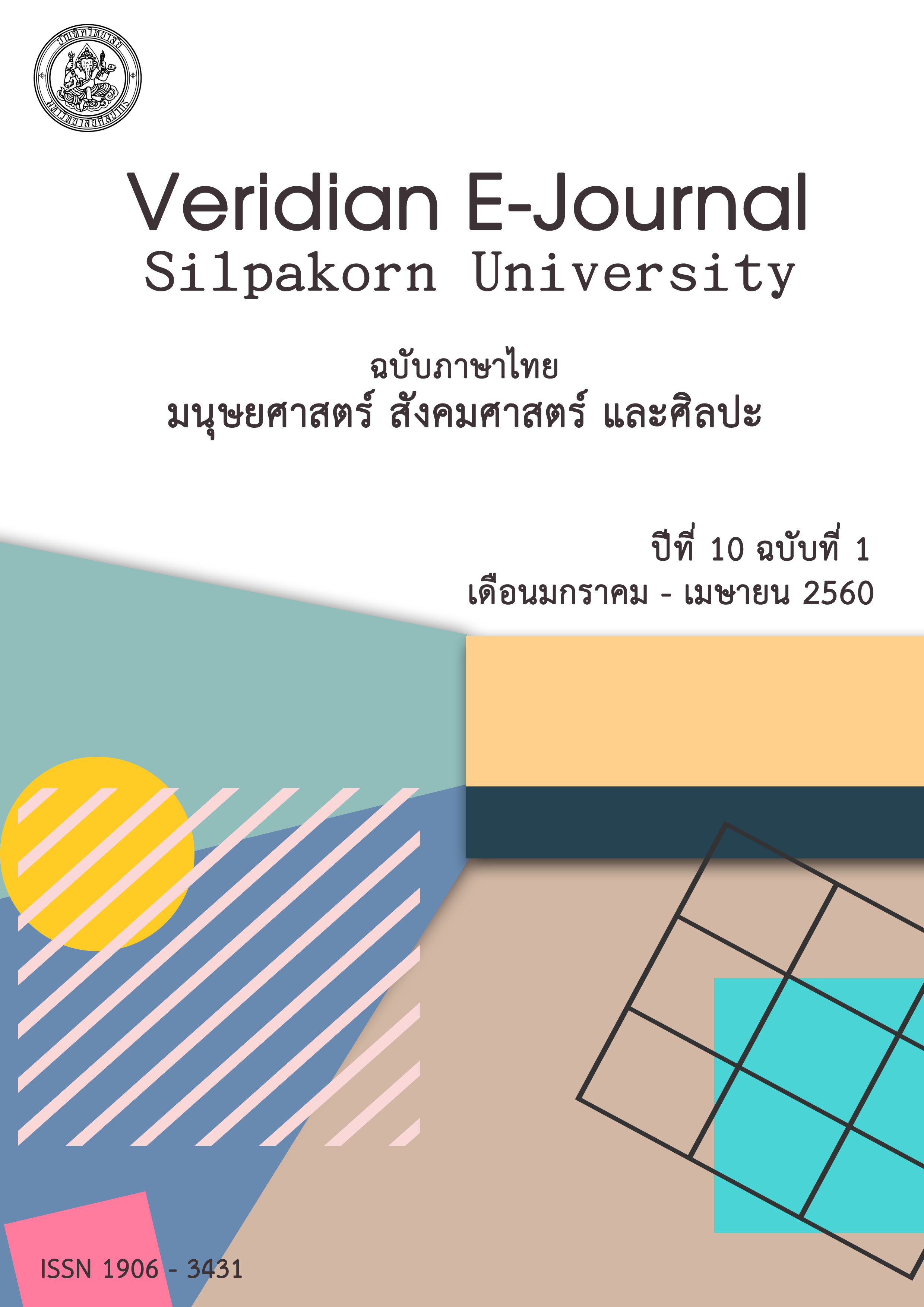บุคลิกภาพ ทักษะ และภาวะผู้นำของหัวหน้าทีมที่มีความสัมพันธ์กับความพึงพอใจในการทำงานของพนักงานบริษัทเอกชน ในเขตกรุงเทพมหานคร
Main Article Content
Abstract
การวิจัยในครั้งนี้มีความมุ่งหมายเพื่อศึกษา ความสัมพันธ์ระหว่างบุคลิกภาพ ทักษะ และภาวะผู้นำของหัวหน้าทีม กับความพึงพอใจในการทำงานของพนักงานบริษัทเอกชน กลุ่มตัวอย่างที่ใช้ในการวิจัยครั้งนี้คือ พนักงานบริษัทเอกชนในเขตกรุงเทพมหานคร จำนวน 400 คน โดยใช้แบบสอบถามเป็นเครื่องมือในการเก็บรวบรวมข้อมูล และสถิติที่ใช้ในการวิเคราะห์ข้อมูลคือ ค่าร้อยละ ค่าความถี่ ค่าเฉลี่ย ค่าเบี่ยงเบนมาตรฐาน ส่วนสถิติที่ใช้ในการวิเคราะห์ความแตกต่างคือ การทดสอบค่าที การวิเคราะห์ความแปรปรวนทางเดียว และ Brown-Forsythe ส่วนสถิติที่ใช้ในการหาค่าความสัมพันธ์คือ สถิติสหสัมพันธ์แบบเพียร์สัน และสถิติการวิเคราะห์สมการถดถอยเชิงซ้อนแบบลำดับขั้น
ผลการวิจัย พบว่าพนักงานที่มีเพศ และสถานภาพสมรส แตกต่างกัน ส่งผลต่อความพึงพอใจในการทำงานไม่แตกต่างกันอย่างมีนัยสำคัญทางสถิติที่ระดับ 0.05 ส่วนพนักงานที่มีอายุ ระดับการศึกษาสูงสุด ประสบการณ์ในการทำงาน และรายได้แตกต่างกัน ส่งผลต่อความพึงพอใจในการทำงานแตกต่างกันอย่างมีนัยสำคัญทางสถิติที่ระดับ 0.01
บุคลิกภาพแบบแสดงตัว บุคลิกภาพแบบเปิดรับประสบการณ์ บุคลิกภาพแบบประนีประนอม บุคลิกภาพแบบมีจิตสำนึก และบุคลิกภาพทางด้านจริยธรรม มีความสัมพันธ์ในทิศทางเดียวกันกับความพึงพอใจในการทำงานของพนักงานบริษัทเอกชนอย่างมีนัยสำคัญทางสถิติที่ระดับ 0.01 ส่วนบุคลิกภาพแบบหวั่นไหว มีความสัมพันธ์ในทิศทางตรงข้ามกับความพึงพอใจในการทำงานของพนักงานบริษัทเอกชนอย่างมีนัยสำคัญทางสถิติที่ระดับ 0.01 ส่วนทักษะของหัวหน้าทีมในด้านทักษะการเจรจาต่อรอง ทักษะการจูงใจ และทักษะการสอนแนะมีส่วนร่วมในการอธิบายความสัมพันธ์กับความพึงพอใจในการทำงานของพนักงานบริษัทเอกชนอย่างมีนัยสำคัญทางสถิติที่ระดับ 0.01 ส่วนภาวะผู้นำของหัวหน้าทีมโดยรวมมีความสัมพันธ์ในทิศทางตรงข้ามในระดับปานกลางกับความพึงพอใจในการทำงานของพนักงานบริษัทเอกชน อย่างมีนัยสำคัญทางสถิติที่ระดับ 0.01 โดยหัวหน้าทีมส่วนใหญ่มีลักษณะภาวะผู้นำแบบประชาธิปไตย
This research aimed to study the relationship between personality, skills and leadership of leaders regarding their level of satisfaction with the performance of private company employees in Bangkok. The sample group in this study consisted of four hundred participants. The questionnaires were utilized as a tool for data collection. The statistics used for data analysis were percentage, frequency, mean and standard deviation, analysis of differences by Independent Sample t-test, one way analysis of variance and Brown-Forsythe, analysis of correlation by Pearson Product Moment Correlation Coefficient and Multiple Regression Analysis (Stepwise Selection).
The results of the study revealed that the employees of different genders and marital status levels had no significant differences in terms of level of satisfaction with the performance of private company employees at a statistically significant level of 0.5. The employees of different ages, education, work experiences, and salary had different levels of satisfaction regarding the performance of private company employees at a statistically significant level of 0.1.
The qualities of the personality of a leader, including conscientiousness, ethics, agreeableness, extraversion, and openness to experience. These traits were positively correlated at a statistically significant level of 0.01 levels. Neuroticism was negatively correlated with satisfaction in the performance of private company employees at a statistically significant level of 0.01 levels. A leader’s skills in negotiation, motivation and coaching related in explaining the correlation between satisfactions with performance of private company employees at a statistically significant level of 0.01. The leadership qualities expected of a leader was medium and negatively correlated with satisfaction in the performance of private company employees at significant levels of 0.01 by a majority of leaders was democratic leadership.

